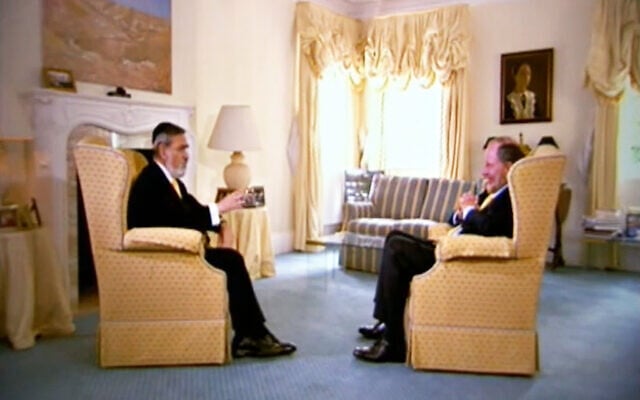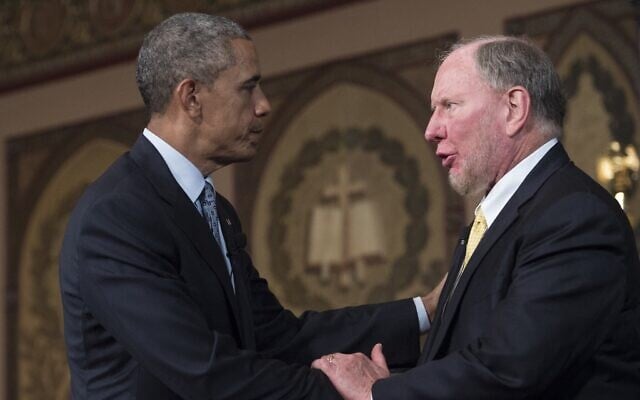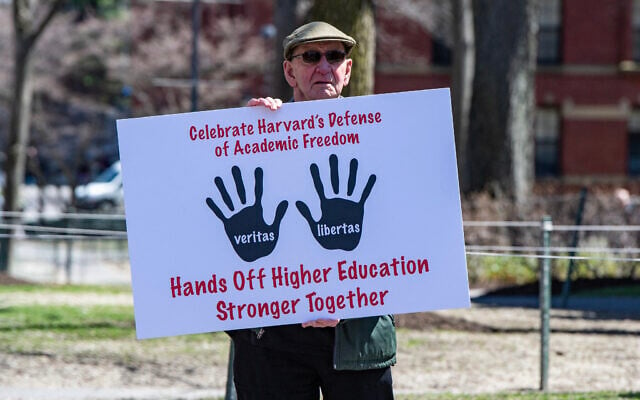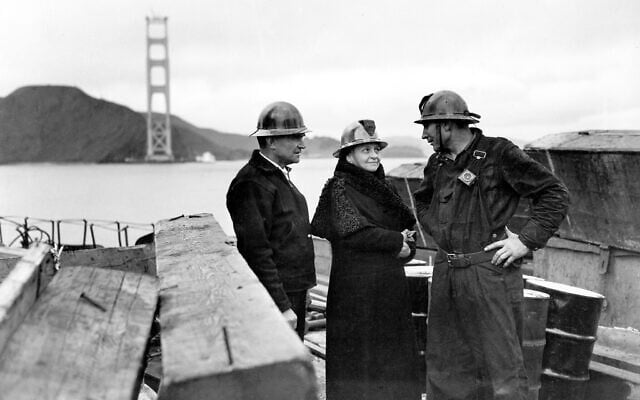


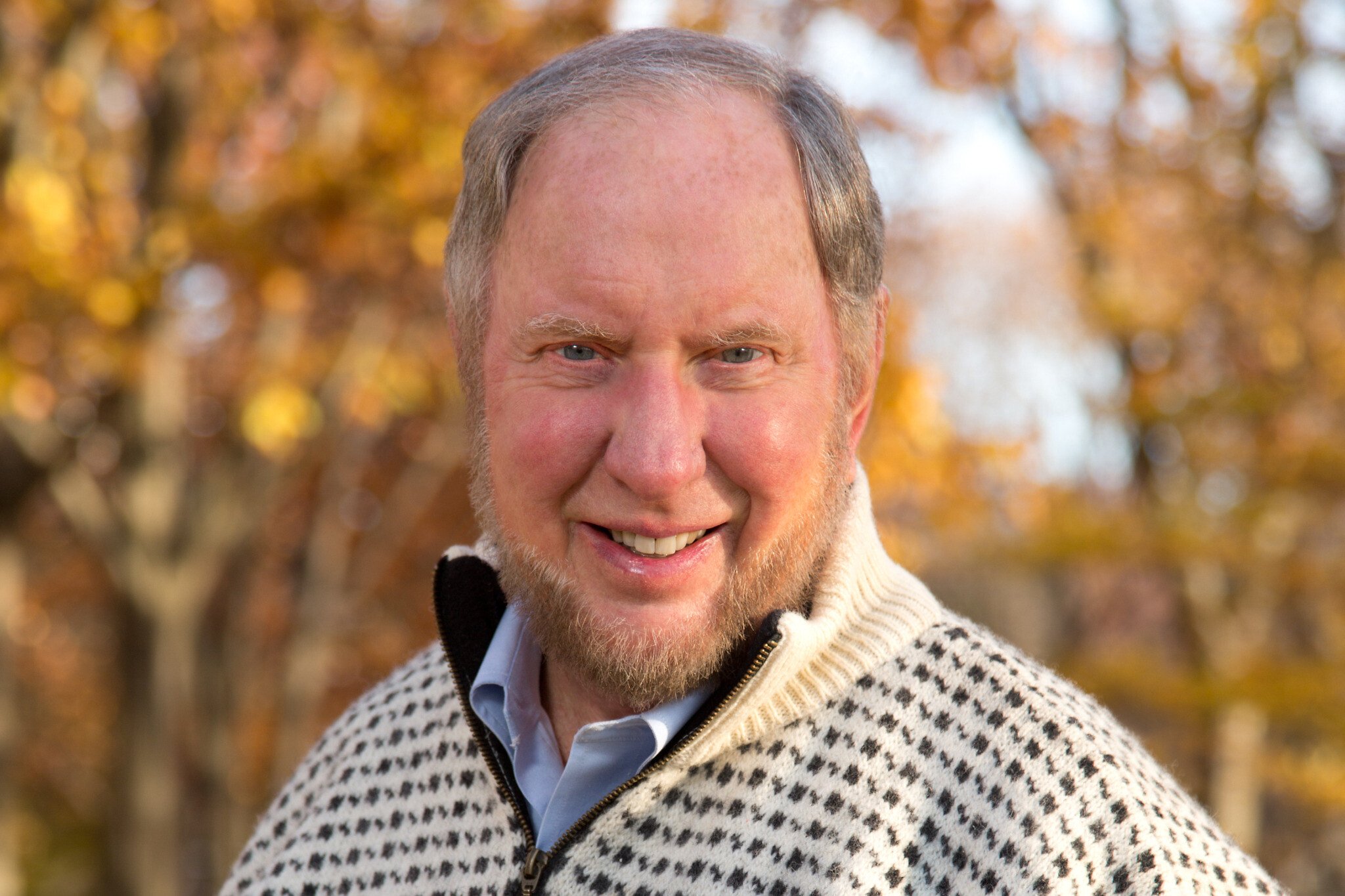
Nearly a quarter of a century has passed since renowned Harvard professor and social scientist Robert D. Putnam wrote “Bowling Alone,” his seminal work on American societal fracture.
“Somebody once called me an Old Testament prophet with data,” said Putnam. “But all I did was diagnose a problem. If I knew how to fix the problem, I would have preached it.”
Putnam is even more dismayed by what he sees today, not just in the United States but across the democratic world: a society more isolated, polarized and fragmented than when he first published his landmark diagnosis of civic decline.
“Things have only gotten worse,” the 83-year-old scholar told The Times of Israel in an interview while on a recent visit to Israel, his first in over a decade. “I thought people might read the book and go join a bowling league. I was wrong. Social capital, trust, informal networks — all have declined.”
Putnam, who served as dean of Harvard’s Kennedy School and advised presidents from both parties, was in Israel to receive the inaugural Award for Outstanding Achievement from the Jonathan Sacks Institute at Bar-Ilan University. The honor is a poignant one as Sacks, the beloved late UK chief rabbi and philosopher, was a friend and kindred spirit.
“We both used the term social capital,” Putnam recalled, using the expression for the networks that help people achieve personal and collective goals.
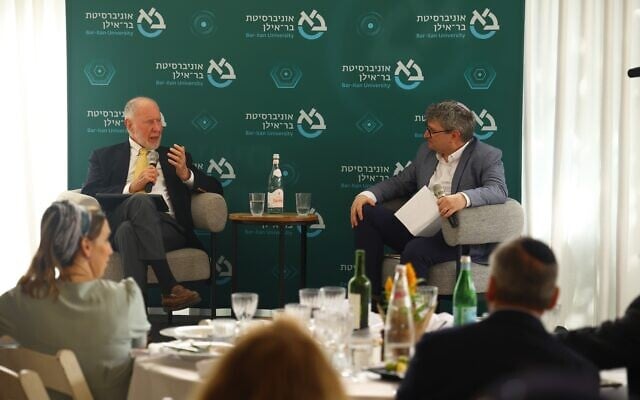
“We came from different religious traditions, but we shared a communitarian worldview — that people flourish better in connection with one another than in isolation,” he said.
Over a long and wide-ranging conversation, Putnam reflected on the state of American democracy, antisemitism, and the enduring legacy of his late friend.
Putnam’s Israel itinerary included speaking engagements, personal reunions with longtime friends and colleagues at Israeli universities, and a visit to Hostages Square in Tel Aviv, a focal point for demonstrations calling for a negotiated deal to end the ongoing Gaza War and see the return of the 58 Israeli hostages currently being held by Hamas.
“We only stayed 20 minutes. Standing that long was hard for us,” Putnam said with a smile.
Putnam is hesitant to comment on Israeli domestic politics but said that he is a general advocate of peaceful protest.
“I think collective protest is generally more productive than individuals stewing in despair,” he said.
Putnam speaks from experience. A fierce critic of US President Donald Trump, he described how he and his neighbors in Cambridge, Massachusetts, stage weekly anti-Trump protests outside their apartment complex.
For Putnam, who came of age during the civil rights era, civic engagement is an essential part of maintaining democracy and not, as some critics in Israel and the US argue, a threat to it.
“When people attacked civil rights protestors in the 1960s, they claimed they were disrupting solidarity. Of course they were — and they should have. They were disrupting something evil: segregation.”
Putnam worries not about too much protest, but too little.
“If I’m worried about anything in America, it’s that way too many young people are not protesting. They’re really upset, but they’re saying, ‘This isn’t my society,’” he said. “That’s much worse.”
Putnam’s 2000 book “Bowling Alone” became a cultural touchstone, identifying a broad decline in American civic life: less trust in neighbors, fewer memberships in associations, declining religious participation, and increasing isolation. Its core insight — that social ties aren’t simply better for an individual’s health and quality of life but are crucial for maintaining societal health and democracy — has only gained traction since.
Unfortunately, so has the crisis it described: low social capital and high social isolation, while trust and informal connections have trended downward.
“Trump didn’t cause the problem — he was a response to social isolation and a symptom of the problem I diagnosed,” said Putnam.
“Steve Bannon even said that he read my book, which identified growing social isolation when they were trying to get Trump elected, and figured that was the way to win,” Putnam added frustratedly. “It turned out we were both right — the best predictor of who votes for Trump is low social capital.”
That weaponization of social division, Putnam argued, has been compounded by the erosion of equal opportunity. He remained unsparing in his critique of what he calls America’s “hereditary upper class,” where college access — and thus opportunity — is increasingly determined by family background.
“I was a hick from Ohio. The most important thing that ever happened to me was that I got a scholarship to Swarthmore, and that changed everything. I’m a creation of higher education,” he said. “Today, the most important driver of inequality in America isn’t race — it’s whether your parents went to college.”
That observation became central to his 2015 book “Our Kids,” which tracked declining upward mobility in small-town America. But Putnam still sees education — particularly public higher education — as a way out.
“Many people think that the problem is elite universities like Harvard, but they have generous financial aid. What changed was that public universities — where most American kids used to be educated for free — began charging money. The political system chose to defund public education, that’s what changed,” he said.
If structural inequality darkens Putnam’s view of today’s America, his memory of Sacks offers a bright counterpoint — a reminder of what moral leadership and human connection can still look like.
He lit up as he recalled their first meeting on a 2010 visit to Sacks’s home in London during a book tour for “American Grace,” a book Putnam co-authored with political science professor David E. Campbell about religion and tolerance in American life.
“We had a warm, personal conversation,” Putnam said, noting that though he converted to Judaism with a Reform rabbi (“which technically didn’t count by Orthodox standards”), he felt embraced by Sacks.
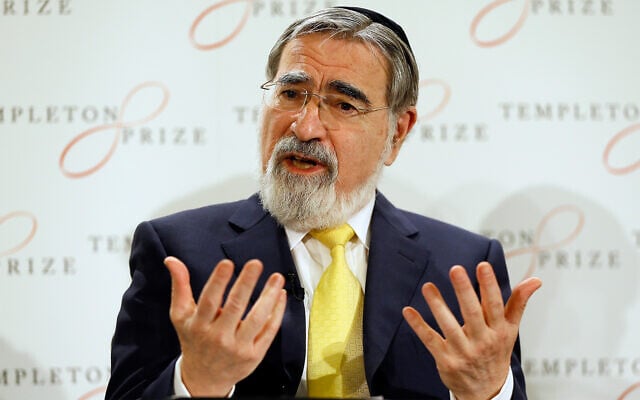
Putnam remembers Sacks pulling a Judaic text from his library and inscribing it for Putnam’s grandson, who was about to have a bar mitzvah in a Pittsburgh synagogue led by a rabbi who was, as Putnam put it, “not only not Orthodox, he wasn’t even Reform.”
“[Sacks] was such a tolerant and generous person,” he said. “He held a very firm belief that people had to be open to people of differing religious and political faiths.”
That same spirit of pluralism animates much of Putnam’s work — and informs his sharpest criticisms of the current political moment.
He expressed deep dismay at the antisemitic rhetoric increasingly tolerated, and even promoted, in US political discourse.
“We’re in a very odd moment in America,” he said. “The people accusing Harvard of being antisemitic are themselves harboring serious antisemites.”
While noting that many of Harvard’s leaders and faculty are Jewish — including its former president Lawrence Bacow — Putnam insisted that “some of these attacks are not about protecting Jews. They’re about attacking Jews, from within and without.”
When asked what Sacks might have made of the current moment, Putnam paused.
“He believed deeply in tolerance,” he said. “But I think he would have been intolerant of intolerance. There’s a line.”
One of Putnam’s most cited findings in “American Grace” is that Americans who are both religious and connected to people of other faiths tend to be the most tolerant.
“It’s not about being secular,” he explained. “It’s about having meaningful relationships across differences.”
That, Putnam believes, is a lesson not just for interfaith understanding but for rebuilding democratic societies more broadly — and especially for those inheriting the damage.
“They didn’t cause the problems America faces today. My generation did. The baby boomers and those before us are the ones who allowed America to become unequal, polarized, and self-centered,” he said, adding that, unfair as it is, the burden of fixing those problems will not fall on his generation.
“Of course it’s unfair. It’s unfair that I benefited from a world in which the US won World War II — something done by my father’s generation. There’s no justice in that. And there’s no justice in the fact that this new generation is stuck with the mess we left behind. But the truth is, only they can fix it,” he said.
Despite his frustration and disappointment with the world today, Putnam remains not optimistic, but hopeful.
“I want young people to get off their duffs, to get out there and join other people, to recognize that they have a moral obligation to one another,” he said. “We need a moral revolution — to love our neighbors as ourselves, darn it! That’s the fundamental issue.”
Putnam concluded the interview by recalling the story of Frances Perkins, who as a young woman in 1911, was in New York City when the Triangle Shirtwaist Factory fire broke out, killing 146 garment workers, many of them young Jewish immigrant women.
“She was having tea when she heard the screaming and saw the smoke. She ran outside and saw these women leaping from windows to their deaths,” he said. “Perkins had a moral epiphany that she was her brother’s keeper, that she had to love her neighbors, even if they were very different from her.”
Perkins demanded to be made fire commissioner and went on to become the first woman to serve in a US Cabinet and the architect of Social Security, under then-president Franklin Delano Roosevelt.
“We need another generation like that, and I believe we can have one,” said Putnam.
“Rabbi Sacks made a powerful distinction between optimism and hope: optimism is passive, it’s just believing things will get better, but hope is active. It means saying, ‘I believe things can get better, and I’m going to do my damnedest to make them better,’” he said. “I don’t know if I’m optimistic. But I am hopeful.”

